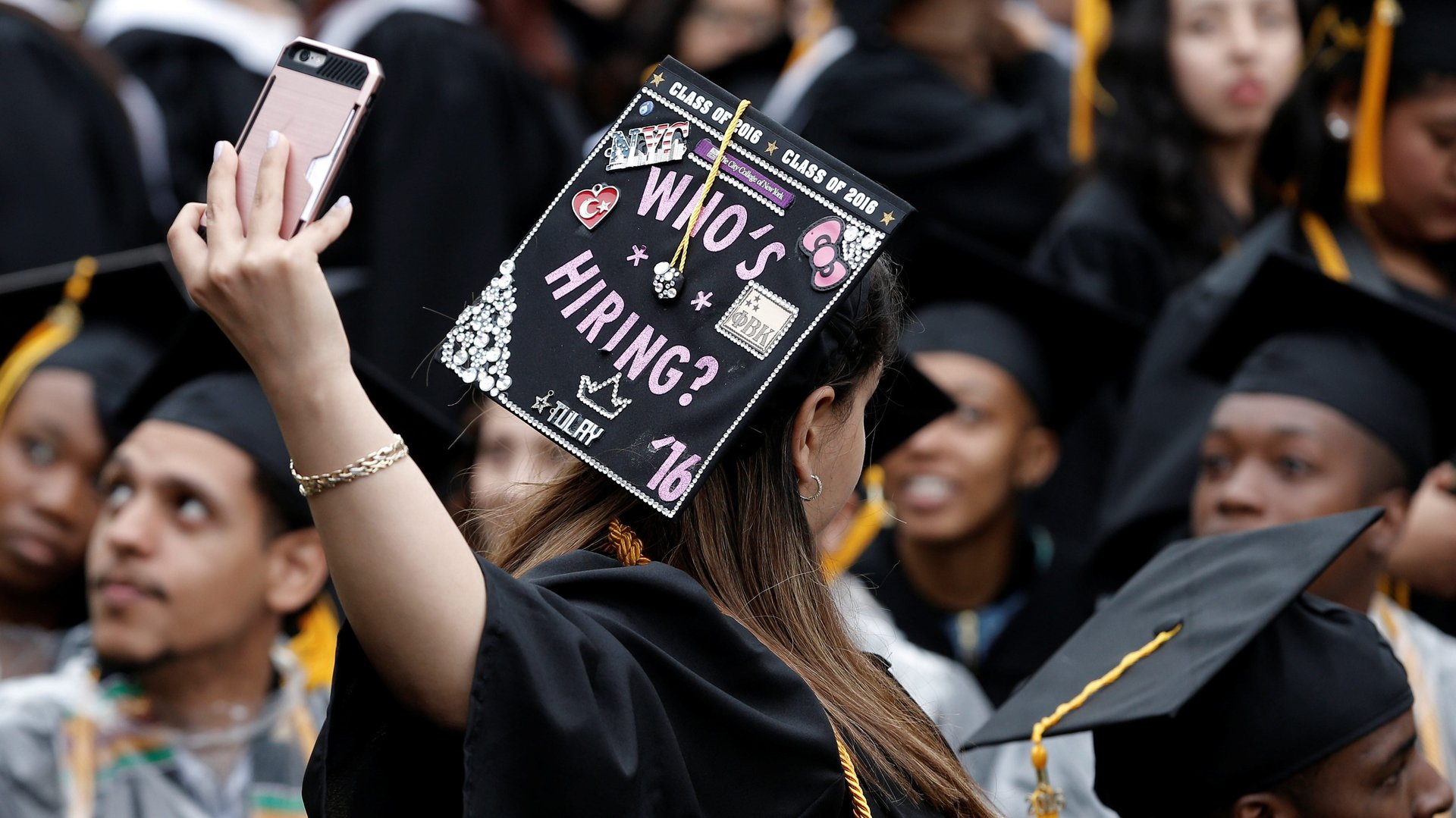The one thing uniting voters for Brexit, Trump, and Marine Le Pen isn’t age or immigration
When Donald Trump won the US Republican primary last year, he boasted about being victorious with uneducated voters. ”I love the poorly educated,” he said. Unlike many of Trump’s questionable quips, this gaffe is backed by a harsh reality that extends beyond the US.


When Donald Trump won the US Republican primary last year, he boasted about being victorious with uneducated voters. ”I love the poorly educated,” he said. Unlike many of Trump’s questionable quips, this gaffe is backed by a harsh reality that extends beyond the US.
The voting patterns for Brexit and the presidential elections in the US and France share one particularly strong predictor: education levels. The higher the number of people with university degrees living in a voting area, the more likely the voters there were to vote for a liberal, progressive candidate or outcome.
In Britain, the decision to leave the European Union (EU) highlighted deep divides running through the country. Education levels were one of the strongest predictors of the Brexit vote. In areas where residents had a college degree, voters tended to side with the “Remain” camp. Areas with lower educational qualifications on average tended to side with the “Leave” vote.
Trump, who named himself “Mr Brexit”, tapped into a similar dynamic. The strongest predictor of how an area voted in the US election in battleground states was education. Areas with a higher number of residents with only a high-school education were more likely to swing towards Trump. Analysts of this trend in the US point to one glaring statistic: 99% of post-recession jobs went to those who went to college.
Education was also the strongest predictor (paywall) in the French election. The higher the number of university graduates in an area, the higher the vote for pro-EU centrist (and now president-elect) Emmanuel Macron. The reverse was true for far-right candidate Marine Le Pen, who found stronger support in areas with lower education attainment.
Immigration played a lesser role in both the Brexit and Trump votes. While the Resolution Foundation, a British think tank, said the education factor (pdf) was the strongest predictor in Brexit and the Trump election, nationality and immigration showed up differently in the two votes. In the US, areas with higher proportions of non-citizen voters tended not to vote for Trump, more so than in the UK. However, the Resolution Foundation said that, in the UK, areas with large increases in immigrant populations tended to vote “Leave.”
Age didn’t play the same role in any of these elections. While young people voted overwhelmingly to remain in the EU and oppose Donald Trump, young French voters came out in droves for populist candidates. During the first round of the French election, the young, disenchanted by high youth unemployment, overwhelmingly backed Le Pen or far-left leader Jean-Luc Mélenchon.